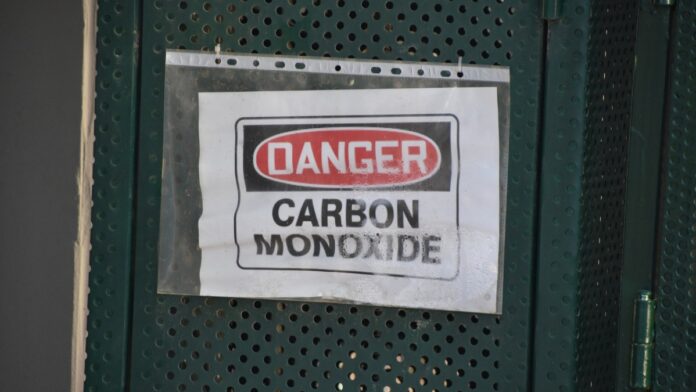A New Jersey family of four was hospitalized in January after being exposed to carbon monoxide (CO) in their home.
The New Jersey Poison Control Center assisted emergency medical teams in treating the family, who were poisoned by fumes from a portable gas generator running in their basement.
The adults and children experienced symptoms and were taken to the hospital, where they received medical care.
Carbon monoxide is an invisible, odorless gas that can cause serious illness or death. It is called “the silent killer” because it cannot be seen, smelled, or tasted. Exposure to CO gas causes hundreds of cases of poisoning in New Jersey every year, some of which are fatal.
The gas interferes with the body’s ability to carry oxygen, leading to symptoms such as headaches, dizziness, weakness, nausea, vomiting, confusion, and chest pain.
In severe cases, it can cause loss of consciousness or death. Because the early symptoms resemble the flu or COVID-19, people may not recognize the danger until their condition worsens.
This incident is one of several recent CO poisoning cases in New Jersey. In Trenton, four people were hospitalized after breathing in carbon monoxide from gas-powered pumps draining water from a flooded basement.
Firefighters responded to the 800 block of Calhoun Street just before 9 p.m. on a Thursday. The leak was controlled, but officials did not immediately release details on the victims’ conditions.
Experts stress that gas-powered machines, including generators, must never be used indoors or in enclosed spaces like basements and garages.
Generators must be placed outdoors at least 20 feet away from windows, doors, and vents, and their exhaust must be directed away from buildings.
Even partially open spaces, like garages with the door up, do not provide enough ventilation. Once CO enters a home, it can spread quickly and reach dangerous levels before people realize what is happening.
Other sources of CO include furnaces, stoves, water heaters, fireplaces, charcoal grills, and cars left running in closed garages. Any fuel-burning device can produce CO if it is not used correctly or is faulty.
Poison control experts urge residents to install carbon monoxide detectors on every floor of their homes, especially near sleeping areas.
If a CO alarm sounds, it must be taken seriously. People should leave the building immediately and get to fresh air.
Many people assume their CO detectors are malfunctioning when they go off, but experts say this is rarely the case.
Poison control officials recommend checking CO detector batteries twice a year when changing clocks for daylight saving time.
Properly maintained alarms save lives by alerting people before they are exposed to dangerous levels of CO.
If someone shows symptoms of CO poisoning, it is important to act quickly. If the person is unconscious or unresponsive, call 911 and move them to fresh air immediately.
Do not waste time opening windows, as this delays escape and increases exposure. Once outside, contact the fire department or energy provider to check for CO leaks before re-entering the home.
For non-life-threatening situations, the New Jersey Poison Control Center is available 24/7 at 1-800-222-1222 for medical advice.
Carbon monoxide poisoning is preventable, but only if people take precautions. The best ways to stay safe are to use gas-powered equipment correctly, keep heating systems in good condition, and have working CO detectors.
The New Jersey family, poisoned by their generator, was fortunate to receive timely medical help. Many others do not get that chance, and it ends in tragedy.


